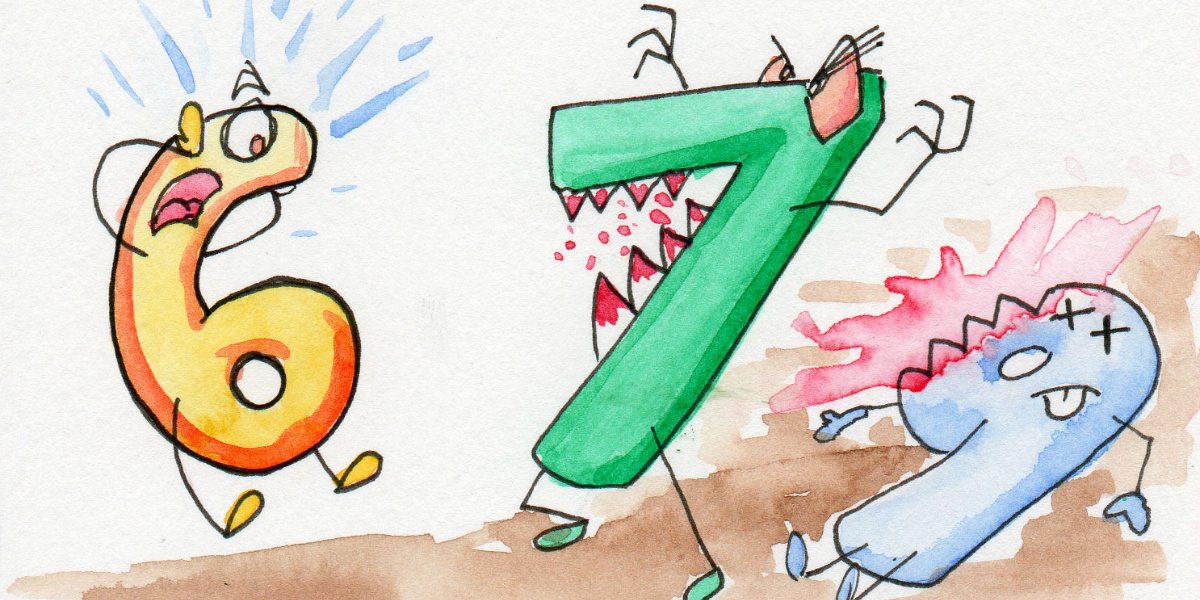
There’s a lot to be said about parenting like crazy until your child is in first grade and then keeping the kid safe, active and well-fed while he/she sorts it out from there. Personality is pretty much formed by age 7. Similar is true of IQ. You can even make a case that trait creativity settles into its adult measurement around the time you’re losing your first teeth (though the expression of creativity remains very malleable). So, as you would expect, when a study just published in the journal Child Development measured math ability in 1,362 first graders and again at age 15, most of the children who were strong mathematicians in the first measurement remained the strongest mathematicians in the final one.
Most but not all. While the tendency was to score the same across time, a few kids got better at math and a few kids got worse. And it turns out these kids whose math ability migrated had some things in common. It wasn’t just cognitive skills, which can counteract the influence of especially poor or (unfortunately…) especially strong parenting (researchers controlled for that). And it wasn’t just reading skills, which have been shown to boost the speed of learning in general (researchers controlled for that, too).
Instead, there’s a short list of things that can help kids’ math ability rise to the top or sink to the bottom no matter their starting point in first grade. All the things in the following list can aid (or hinder…) your child’s development of math skills through elementary and middle schools – take a second to see if you can guess which are most and least important: Executive function, division and fraction skills, math self-concept, placement in gifted/talented or special education.
Let’s get this out of the way: division and fraction skills were the most predictive, meaning that kids who learned to be good at division and fractions turned out to also be good at math. But that’s kind of a ringer – of course kids who are good at math are good at math!
Of the remaining factors, the one that made the most difference to the growth of a child’s math skills was what the researchers call their “math self-concept of ability”. First graders who thought of themselves as mathematicians were more likely to eventually become mathematicians, whether or not they were actually good at math in the first place.
The next important factor was school placement. Kids who were placed in gifted and talented programs rose toward the top, while kids who were placed in special education programs sunk toward the bottom (again this is regardless of where they actually started). Finally a child’s executive function skills like planning, working memory and focus didn’t actually do much to predict who would get better or worse at mathematics over time. (This surprised me; I thought executive function would be the most important. Still, many of the kids who were good at math and stayed good at math presumably had high executive function skills throughout.)
The authors write that, “Although earlier mathematical skills are critical for obtaining later ones, the in?uence of other factors, including motivation and school context, should not be overlooked.”
Here’s what this means for parents: It’s great if you can parent like crazy to make a strong first-grade mathematician. (Math skills in 1st grade are still the best predictor of math skills at age 15.) If first-grade mathematical proficiency isn’t in the cards or if that ship has already sailed, it would also be great if your child, regardless of talent, could avoid special education classes or get into the gifted and talented program. It would be even greater if your child could see him- or herself as a “math person”. Fostering this identity or “math self-concept of ability” – meaning that your child thinks he or she can do math – might be the best thing you can do as a parent to help your child grow into a mathematically competent adult.
**
If you have just a couple more minutes, kindly consider punching over to a post I wrote a couple weeks ago that uses another study to explore how to teach this math identity.



